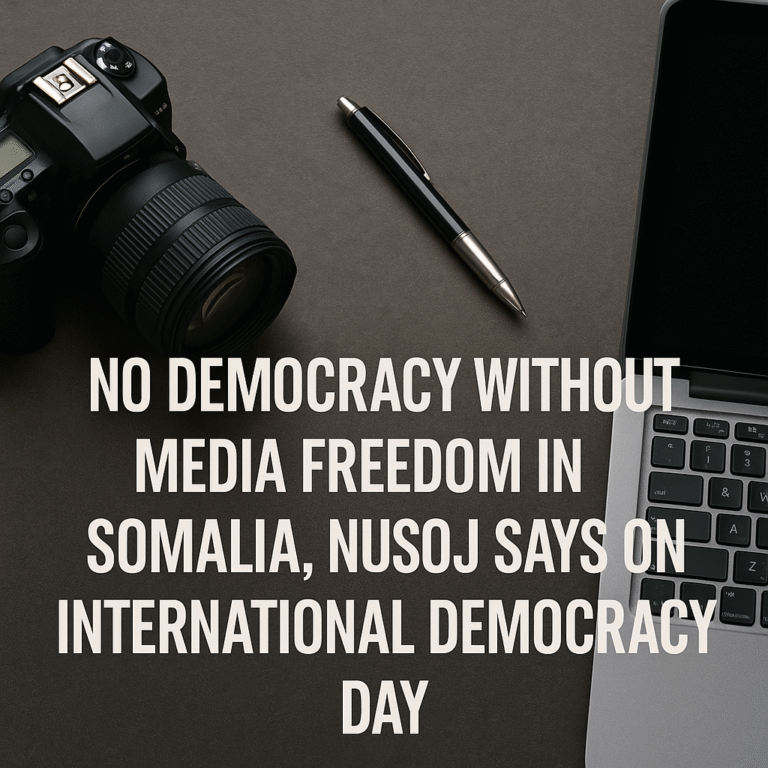MOGADISHU, Somalia — Somalia’s democracy is at risk unless escalating attacks on journalists and press freedom are urgently addressed, the National Union of Somali Journalists (NUSOJ) warned Monday.
Marking the International Day of Democracy, NUSOJ reported 59 media freedom violations in 2025, citing a pattern of violence, legal harassment, and growing censorship.
“We cannot speak of democracy while journalists are hunted, hauled to court and silenced,” said NUSOJ Secretary General Omar Faruk Osman on Monday.
According to NUSOJ, journalists face daily physical threats, arbitrary arrests, and harassment—often from security forces or armed groups obstructing public access to information.
“These are not isolated. They reflect systematic efforts to silence the press and block citizens from being properly informed,” Osman added.
NUSOJ also criticized Somalia’s legal environment, highlighting misuse of the Penal Code and other laws that criminalize journalists for doing their work.
“Instead of protecting society, these laws are twisted to punish journalists. Courts routinely prosecute reporters for publishing basic news and commentary,” NUSOJ said.
The union raised concerns about economic and digital pressure, including ad censorship, surveillance of journalists’ devices, and internet shutdowns in key regions.
“These pressures erode independence and isolate communities from vital news. They weaken the foundation of any functional democratic society,” said Osman.
Women journalists face added risks, targeted by online and offline abuse aimed at silencing them and pushing them out of the profession.
“This fear fuels self-censorship. Critical stories go unreported, denying people the information needed for real participation in Somalia’s democratic transition,” Osman said.
To address the crisis, NUSOJ demanded urgent reforms, including repealing laws that criminalize journalism and launching credible investigations into attacks on reporters.
NUSOJ also urged the government to enact access-to-information legislation and implement the national journalist safety plan with full institutional cooperation.
“Let journalists work freely. Repeal oppressive laws. Stop arbitrary arrests. Protect truth and enable all Somalis to enjoy their right to free expression,” Osman said.
Media freedom, NUSOJ emphasized, is not a side issue. It is central to democracy, development, credible elections, and accountability in Somalia’s political future.
“Somalia’s democracy cannot succeed while the press remains under siege. Its health depends on whether journalists can work openly and without fear,” NUSOJ stated.
